When it comes to politics, the average Southern Baptist is more likely to agree with historic Baptist teaching than the claims of some self-professed Christian nationalists.
A Lifeway Research study finds Southern Baptists broadly embrace conservative political ideology but also support religious liberty for all Americans and a government that does not favor any specific religion. Sponsored by the Land Center for Cultural Engagement at Southwestern Baptist Theological Seminary, the study surveyed 500 self-identified Southern Baptist churchgoers and 507 individuals who served in key leadership positions at Southern Baptist churches excluding senior pastors.
“These findings reinforce that Baptists in our pews generally hold historic Baptist beliefs about the role of the church and the state,” said Dan Darling, director of the Land Center for Cultural Engagement at Southwestern Baptist Theological Seminary. “Baptists desire robust engagement in the public square and strongly believe in a free church in a free state. This research should inform the discussions surrounding Southern Baptists, especially in a political season.”
Church, state and nationalism
Most Southern Baptists view the relationship between the church and state more like early Baptists than modern-day Christian nationalists. Those at Southern Baptist churches value religious liberty for all Americans and aren’t as supportive of establishing Christianity as a preferred religion within the U.S.
Around 3 in 5 members (58%) and leaders (62%) say the government should not favor any specific religion or religious belief, while around a third of members (36%) and leaders (33%) say the government should favor Christianity.
Your tax-deductible gift helps our journalists report the truth and hold Christian leaders and organizations accountable. Give a gift of $30 or more to The Roys Report this month, and you will receive a copy of “Hurt and Healed by the Church” by Ryan George. To donate, click here.
Additionally, 92% of laity and 95% of key leaders believe religious liberty should apply to all persons and religions. Two-thirds of members (66%) and three-fourths of leaders (75%) do not believe religious liberty is a principle that should only advance the Christian faith. More than 4 in 5 laity (81%) and leaders (85%) agree the government should not give one religion preference over another. Similarly, 80% of members and 86% of leaders support the government ensuring people can freely practice their religion, even when this includes false religions. Almost all members (94%) and leaders (99%) reject the idea that the government should decide what type of church people attend, with 93% of members and 98% of leaders strongly disagreeing.
“Asked in several different ways, large numbers of Southern Baptists consistently want religious liberty to encompass all religions and desire space for differing opinions on religion among Americans,” said Scott McConnell, executive director of Lifeway Research. “This likely is less altruistic and more pragmatic, reflecting numerous historic governments that tried to establish Christianity with less than desirable results.”
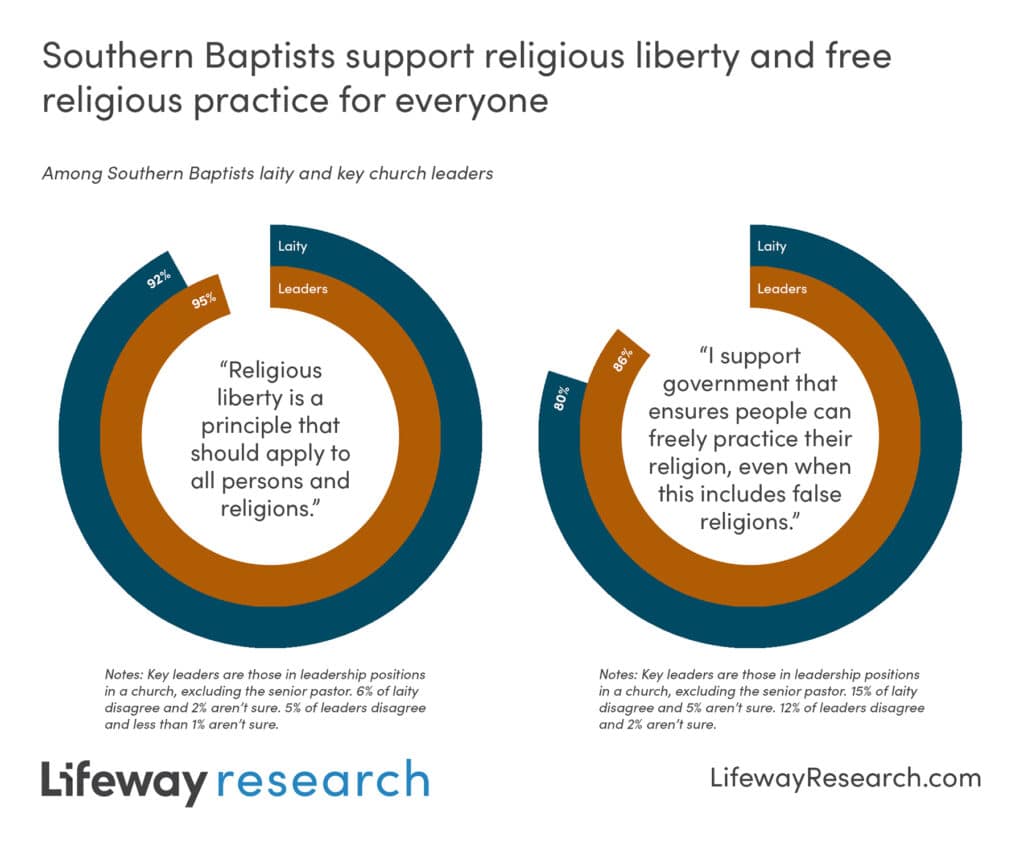
Members and leaders see broad application for religious freedom. Because of this Constitutional guarantee, Southern Baptists say it should be an American’s right to choose your religious beliefs (94% laity, 97% leaders), worship with others who share your faith (90%, 98%), practice principles of your faith in everyday life (88%, 97%), build a house of worship (84%, 93%), tell others about your religious beliefs (82%, 98%) and run your business in accordance with your beliefs (71%, 94%).
Southern Baptist laity are more divided over privileges afforded to Christianity due to what they see as the faith’s role in the nation’s origins. More than 9 in 10 (91%) say Christianity influenced the founding of the United States. When asked if Christianity deserves special privileges from the American government due to the nation’s history, 51% of Southern Baptists members disagree, while 38% agree.
Southern Baptist churchgoers may embrace religious freedom in part because most don’t see other religions as threats. Three in 5 (60%) say the presence of competing religions in a society does not pose a threat to the church and its mission.
On other issues, however, Southern Baptists are more likely to advocate for Christian and religious influence in the government or there are more differences of opinion between the laity and leaders regarding nationalism themes. More than 2 in 3 members (67%) and 3 in 4 leaders (77%) believe Christians should fight secularism by encouraging legislation that encourages Christian beliefs and practices. Laity are more likely than leaders to say loosening U.S. Constitutional prohibitions on government involvement in religion can stem the tide of moral decline (43% v. 29%). Half of leaders (51%) disagree compared to 38% of members. While most in both groups believe every public school should post the Ten Commandments in their buildings, laity are more supportive than leaders (70% v. 57%).
Baptist history
Despite sharing much of their perspectives, most members and leaders say they’ve never heard of several key Baptist thought leaders. Around 9 in 10 members (90%) and leaders (93%) have heard of Martin Luther King, Jr., the Black Baptist Civil Rights leader. Far fewer say they know of Roger Williams (21% members, 43% leaders). Williams was the founder of the first Baptist church in America and advocated for a “wall of separation between the garden of the church and the wilderness of the world,” a metaphor later used by Thomas Jefferson to describe his preference for the church and state relationship. Even fewer know John Leland (14%, 30%), an early American Baptist pastor and advocate for religious liberty, and Isaac Backus (10%, 25%), a Revolutionary War–era Baptist pastor who campaigned against state-established religions.
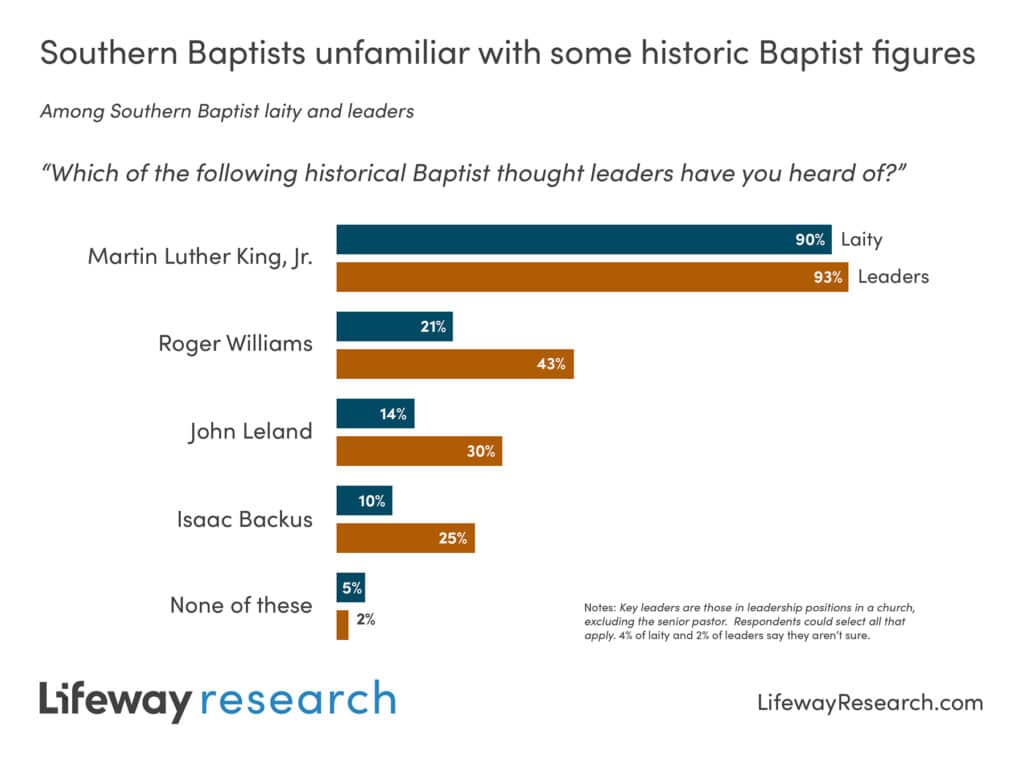
Still, Southern Baptist members say they are aware of Baptists’ historic role in these discussions. Almost 3 in 5 (58%) say they are at least somewhat knowledgeable about how Baptists influenced religion and politics when the U.S. was founded. Specifically, more than 4 in 5 (86%) say Baptists have regularly advocated for the right to worship freely regardless of religion. Similarly, 85% agree Baptists have stood up for the freedom of individuals to follow their conscience on religious beliefs.
“It is clear that a majority of Southern Baptists believe in a robust engagement in the public square where Christians apply their faith to public policy and cultural concerns but are clearly allergic to an official state church or the magisterial Protestantism from which the Baptist movement emerged and separated,” said Darling.
Almost half of Southern Baptists (46%) say the pastors and teachers at their church are currently speaking the right amount about the relationship between church and state. Slightly fewer (43%) say they’d like to hear more, while 11% say they want less.
Ideological identity
Most Southern Baptists are conservative and Republican and have corresponding political priorities, but some, particularly among those in the pews, lean more to the center. Almost 3 in 5 Southern Baptist laity (58%) and 3 in 4 leaders (75%) identify with the Republican party. A quarter of churchgoers (26%) and 7% of leaders are Democrats, while 15% of laity and 11% of leaders say they are independent.
Ideologically, 90% of key leaders and 64% of laity describe themselves as politically conservative, including 28% of each group who say they are very conservative. The laity are much more likely to see themselves as moderate or liberal. Almost a quarter (22%) say they are moderate or middle-of-the-road, compared to 7% of leaders. Another 14% describe their political ideology as liberal, including 6% who say they are very liberal. Among leaders, 2% total identify as slightly liberal, liberal or very liberal.
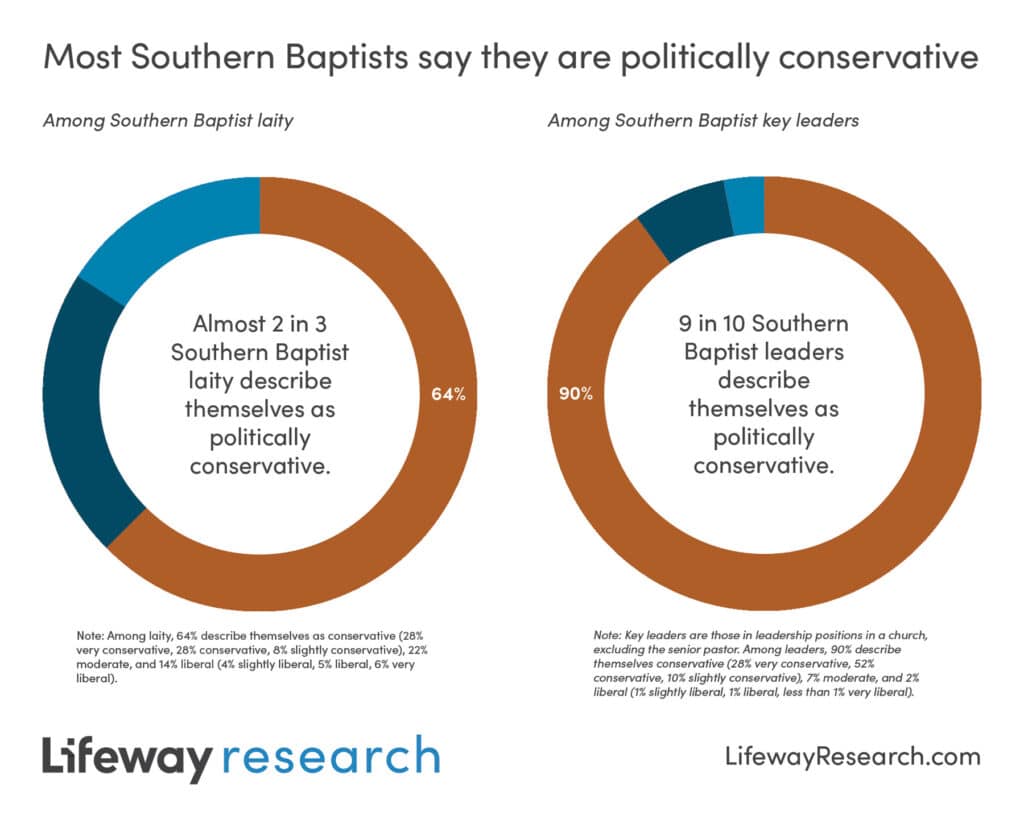
The political persuasion of Southern Baptist laity bleeds over into how they view national issues. Almost 9 in 10 (96%) say national defense is at least somewhat important. They place similar importance on the national debt (95%), parents’ rights in education (95%), religious liberty (97%), immigration (93%) and abortion (90%). Fewer say the secularization of society (79%) or climate change (60%) are as important as the other issues surveyed.
When asked to identify the five most important of the 10 rights guaranteed by the Bill of Rights in the U.S. Constitution, most Southern Baptist churchgoers and leaders say freedom of speech (87% laity, 91% leaders), freedom to exercise their religion (83%, 97%) and freedom to keep and bear arms (63%, 66%). A majority of leaders (55%) also selected freedom from laws establishing a religion, while around a third (35%) of members agreed. Other rights selected by laity and leaders as part of their most important five included prohibition of unreasonable search and seizure (47% laity, 40% leaders), criminal trial by an impartial jury (41%, 39%), freedom of the press (33%, 38%), prohibition of cruel and unusual punishment (32%, 22%), speedy and public trial (20%, 12%) and assemble to protest (17%, 13%).
Nationalism perspectives and political engagement
While there is general agreement between the laity and the leaders on most issues, the two groups describe the nation differently. Leaders are far more likely than the laity to say America is a secular nation (62% v. 11%), while the laity are almost twice as likely as the leaders to say America is a nation of many religions (63% v. 32%). Laity are also more likely to see the country as a Christian nation (22% v. 3%).
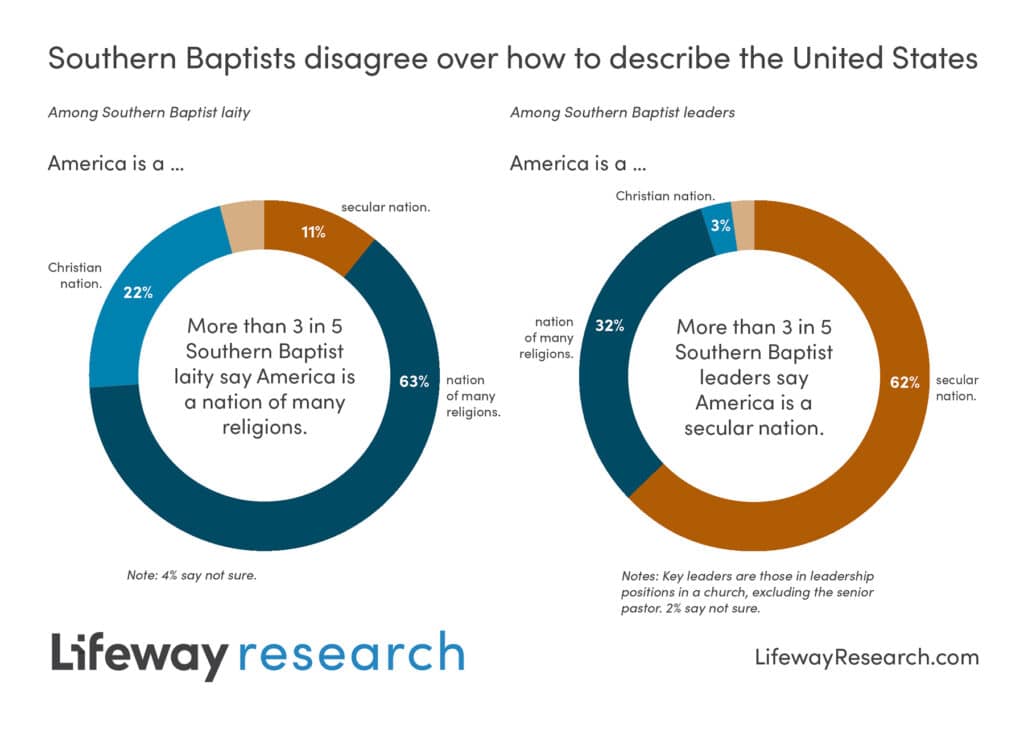
Most Southern Baptist laity (55%) say God has given authority to government leaders that Christians should follow. Around a third (35%) disagree. But they see clear limitations to that authority. Around half (52%) disagree that God establishes civil rulers and has given them authority to compel and guide people in matters of religion, while more than a third (39%) agree. Specifically, 4 in 5 (81%) say Christians should obey all laws unless they directly conflict with following God’s commands in Scripture.
When laws, leaders or systems are unjust, 88% believe Christians should pursue nonviolent resistance. Even when the injustice is severe, 73% of Southern Baptists don’t believe Christians should advocate for violent resistance.
Southern Baptists are most likely to say their views on the relationship between government and religion have most strongly been influenced by the views of their church (51%), personal experience (47%) and views of their parents or family (46%). Fewer point directly to the views of their pastor (23%), books they’ve read (17%), watching actions of groups they dislike (15%), watching actions of groups they admire (14%), their close friends (13%), political leaders or their preferred political party (13%) or news media they consume (8%).
“This survey shows that pastors and churches have an important role to play in helping their people steward their citizenship,” said Darling. “Many voices throughout the week compete to disciple Christians in public theology. Their local church should not hesitate to be the most influential one.”
Most Southern Baptist laity (56%) believe involvement in politics is a way for Christians to love their neighbor. Another 31% disagree and 13% aren’t sure. Seeing political engagement in this way, 70% believe Christians are obligated to participate in the election of leaders, while a quarter (26%) disagree.
They also believe their prayers and concerns should extend beyond their national borders. Almost all (96%) say Christians should pray and advocate for those facing religious persecution in other countries. Additionally, 91% say Christians should stand with the struggling and oppressed people in the world with the goal being their salvation.
“We are glad to once again partner with Lifeway to help gather important research on the beliefs of Southern Baptist members and leaders in order to equip pastors in their important work,” said Darling.
Aaron Earls is the senior writer at Lifeway Research.




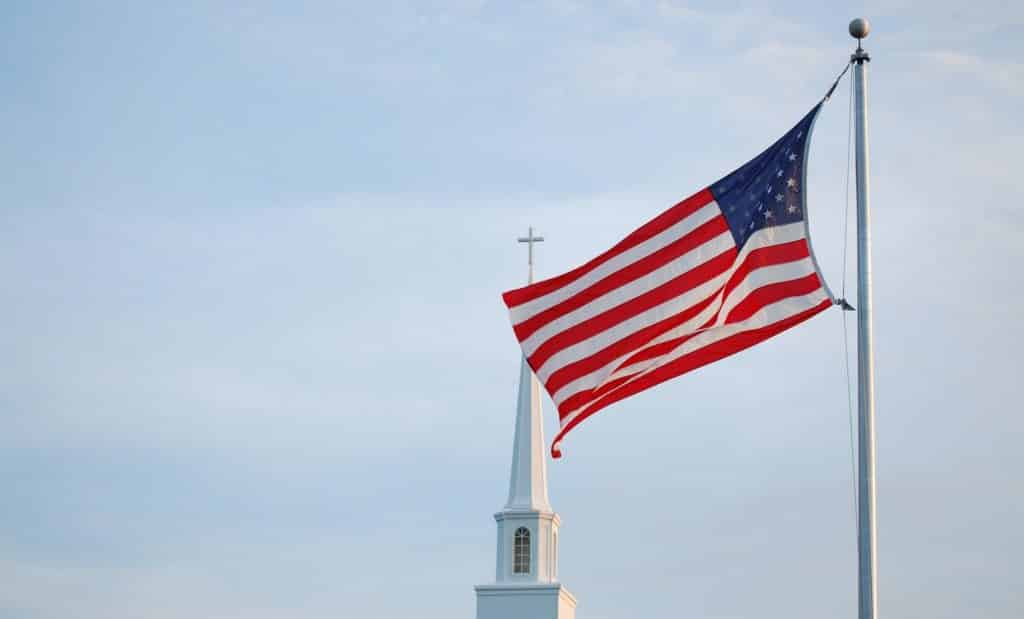
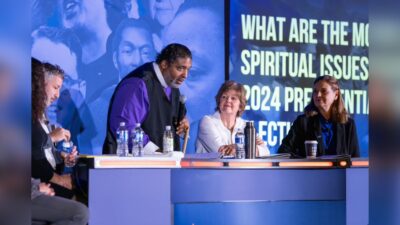
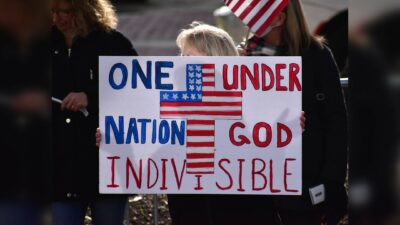
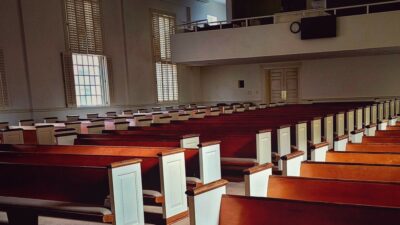

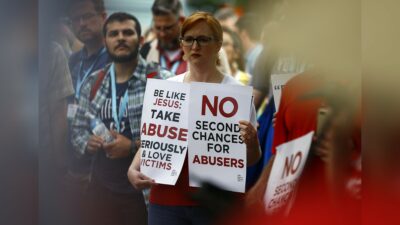
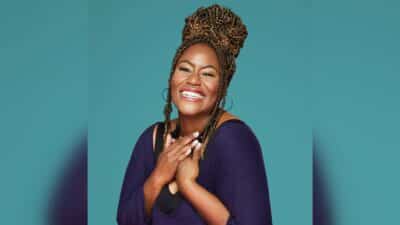

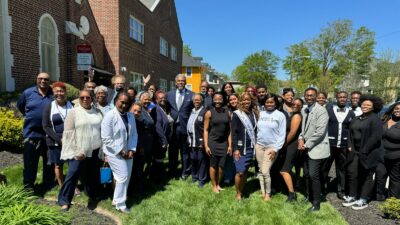







6 Responses
sad state of affairs that the right to bear arms holds more value than say, freedom of the press or the various jurisprudence. Shoot first, ask questions later I guess….very Christlike.
American religious liberty is a distinct byproduct of Christian liberty, which provided the primary original religious influence behind American governmental morality. Christian liberty however thrives only as a spiritual influence, not as a naked power of political enforcement. And it can only thrive as a spiritual influence by testing within a national context that allows for full religious liberty.
This sets up a delicate balance between Christian liberty, plural religious liberty and political moral enforcement. If Christian liberty loses its spirit to take up political enforcement against religious pluralism, it sacrifices itself to become religious tyranny for all. Yet if political enforcement revolts against the morality presumed within Christian liberty to elevate plural religious moralities, it becomes amoral tyranny for all.
The latent tyranny within Christian nationalism is not the answer to the present amoral tyranny. Christian repentance by returning to prove our original power of gospel influence by the Spirit in the face of all other religions is the only route to national restoration.
Wow! What a great response, especially the last paragraph. Read this carefully, everybody!
Which is very similar to what Doug Wilson was arguing in his latest interview with Tucker Carlson (I was working while listening so I may have missed something).
eh – not really. Terms like “national restoration” are still just subtle nationalist dog whistles, but dog whistles nonetheless. First define ‘national restoration’ before just throwing it out there as some objective truth that can be obtained.
Restoration to what – to a given era? Like the 50s? Jim Crow? Or maybe like the 1800s when chatel slavery was justified using both economic and biblical arguments or manifest destiny displaced millions and wiped out cultures? Perhaps the 1700s when political expediency allowed humans to be classified as only three-fifths of a person? The 1600s? Theocratic rule in hamlet and dale?
There is no former glory to which this, nor any nation can return nor a final glory to which they can attain. All have sinned, all in some way and at some time have and continue to enage in wickedness.
This is very good. IMO, “Christian nationalists” are reacting to legitimate concerns, but putting the cart before the horse. Secularism can be just as tyrannical as established religion when those in power don’t respect religious beliefs. But if reacting to secularism becomes the driving force that animates Christians, we may win the battle and lose the war for America.